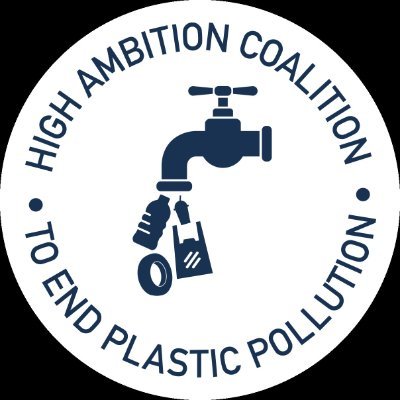Time running out for ambitious plastics treaty
As delegates from over 170 states gather in Geneva for potentially the final round of global plastics treaty negotiations, years of diplomatic efforts hang in the balance. With plastic production booming and driving widespread pollution, climate breakdown and human health impacts, three distinct camps have emerged: ambitious states pushing for production caps, petrostates blocking progress and states in between that might still be persuaded to back a strong treaty. As fossil fuel representatives and other corporate lobbyists flood negotiations, civil society organisations backed by leading scientists continue to mount an intensive campaign for a treaty that can make a real difference.
The stakes are high in Geneva. Negotiators from over 170 states are gathered in what’s scheduled to be the final round of negotiations to forge a legally binding and urgently needed treaty to stop runaway plastic pollution.
Plastic production has skyrocketed. It reached 475 megatons in 2022, compared to 2 megatons at the start of the boom in 1950, and a recent study projects the figure could more than double to 1,200 megatons by 2060. This explosive growth, driven primarily by single-use plastics such as drinks bottles and fast-food containers, has created an environmental catastrophe. Plastic pollution is everywhere, from Mount Everest’s peak to the deepest ocean trenches.
Plastics present a growing danger to human health, with impacts falling disproportionately on vulnerable populations, particularly children. The crisis is inseparable from climate breakdown: over 98 per cent of plastics are made from fossil fuels, and their energy-intensive production drives the climate emergency by releasing the equivalent of 2 billion tonnes of carbon dioxide annually, exceeding Russia’s national emissions.
From scientific alarm to diplomatic deadlock
These growing impacts have informed the push for international standards to get the problem under control. The campaign began after marine scientists documented unprecedented ecosystem damage in the early 2000s. Initial responses were fragmented, with individual states introducing piecemeal bans on items such as plastic bags and microbeads, while regional agreements attempted to address marine pollution with limited success.
The breakthrough came at the United Nations (UN) Environment Assembly in Nairobi, Kenya in March 2022, when states agreed to develop a legally binding treaty to tackle plastic pollution, which was supposed to be finalised by 2024. This historic decision, supported by over 700 civil society groups from 113 countries that urged decisive action, launched the Intergovernmental Negotiating Committee (INC) process with a mandate to develop comprehensive regulations covering the entire plastics lifecycle, from production to disposal.
The journey has been tortuous. The first INC session, held in Punta del Este, Uruguay, in November and December 2022, established working groups and procedures. The second, in Paris, France, in May and June 2023, began substantive discussions on the treaty’s scope and potential measures. By the third meeting in Nairobi in November 2023, fundamental divisions had crystallised. The fourth session, held in Ottawa, Canada in April 2024, attempted to bridge these divides and forge consensus on key provisions. But the fifth meeting, held in Busan, South Korea, in November and December 2024, exposed seemingly irreconcilable differences over the treaty’s core elements, forcing suspension of what was intended to be the final negotiating round.
Three camps
Three distinct camps have emerged, each representing fundamentally different approaches.
Leading the charge for comprehensive reform, the High Ambition Coalition, co-chaired by Norway and Rwanda, includes over 100 states spanning the European Union (EU), Australia, Canada and South Korea. Aligned with civil society demands, the coalition pursues three global strategic goals: limiting plastic production and consumption to sustainable levels, enabling a circular economy that protects environmental and human health and achieving sound management and recycling of plastic waste.
In stark opposition stands a group actively working to block meaningful progress, including major oil producers such as Iran, Russia and Saudi Arabia. These states reject production caps or restrictions, framing waste management as the primary concern while favouring voluntary approaches centred on recycling. They use every procedural tool available to obstruct progress, while vast financial resources enable them to pressure and influence other states.
A third group that includes major plastic producers such as China and the USA occupies more ambiguous territory, occasionally aligning with either camp. The USA has typically supported improved waste management and recycling infrastructure, supply chain transparency measures and innovation in alternative materials. But Donald Trump’s return signals renewed scepticism towards the environment, with the reversal of Joe Biden-era policies that eliminated single-use plastics from federal operations. Reuters reported seeing a Trump administration memo urging states to reject plastic production caps at the Geneva negotiations.
China’s policy emphasises differentiated responsibilities between global north and global south countries, calling for capacity strengthening in global south countries while advocating gradual transition to manage economic impacts.
Civil society views this third group as largely negotiating in good faith and potentially persuadable, which represents the best hope for an ambitious treaty: one that includes clear production reduction targets and bans the most toxic materials and many single-use plastics.
The industry influence problem
One of the most contentious aspects of the negotiations has been the overwhelming presence of fossil fuel and plastic industry lobbyists. A record 220 corporate lobbyists registered to attend the December talks in Busan, outnumbering delegations from the EU and its member states, all Pacific Island states and the whole of Latin American and the Caribbean combined.
Lobbying tactics have encompassed outright harassment. Bethanie Carney Almroth, who researches the environmental impacts of plastics, described being surrounded and intimidated by chemical company employees during the Ottawa meeting.
The presence of those who’ve profited most from plastic pollution undermines the negotiation process and risks fundamentally compromising the effectiveness of any resulting treaty. A recent report by InfluenceMap found that plastic and fossil fuel industry groups are systematically advocating to weaken treaty ambition, challenging science and silencing critics.
Civil society demands ambition
Despite facing significant participation barriers, civil society is a powerful force pushing for an ambitious agreement.
The scientific evidence clearly demonstrates the need to tackle production rather than focus solely on waste management. Under 10 per cent of plastic is currently recycled: the process is expensive, toxic and can be done a limited number of times, since plastic degrades when it’s recycled.
Supported by a declaration from over 1,100 scientists backing production caps, civil society is combining research, public awareness campaigns, direct action and strategic policy advocacy to influence negotiations and counter industry narratives.
The Environmental Investigation Agency has exposed the global plastic waste trade’s dark reality, revealing illegal schemes that dump waste in poor countries. The Break Free From Plastic movement’s annual brand audit reports have transformed the pollution narrative by mobilising thousands of global volunteers to document waste, demonstrating that a small number of multinational companies generate most plastic pollution.
The Center for International Environmental Law provides legal expertise on treaty mechanisms while tracking industry lobbying. Working with waste picker communities, the Global Alliance for Incinerator Alternatives documents plastic pollution’s impact on excluded people and challenges false solutions such as recycling and incineration.
Creative campaigns have amplified the message. Digital innovation has reached people through pollution tracking apps, interactive waste trade flow maps and virtual reality experiences. Social media campaigns have made complex policy issues accessible, with viral images of marine life entangled in plastic proving particularly powerful. Campaigns such as the #PlasticFreeChallenge have demonstrated practical alternatives, while #StopShippingPlasticWaste has pressured major shipping companies to stop transporting plastic waste to global south countries.
Direct action has captured public attention. Extinction Rebellion staged blockades of petrochemical plants across six North Sea countries. Greenpeace’s Plastic Monster tours brought waste in massive art installations to major polluters’ corporate headquarters, while activists boarded a tanker loading toxic plastic chemicals as Busan negotiations reached critical stages.
Local initiatives have used creative tactics, including placing ‘plastic expiry date’ stickers on supermarket products and holding plastic packaging return events. Corporate accountability efforts have included public scorecards and brand-jamming campaigns. In Australia, the Unwrapped campaign investigated major supermarkets’ plastic packaging use while advocating for strict production limits.
Civil society is using litigation to prevent new plastics plants. Greenpeace is taking to Geneva’s streets demanding at least 75 per cent plastic production reduction by 2040, making clear that recycling alone can’t solve the crisis.
Civil society’s voices are being heard by some in the private sector. As part of initiatives such as the Business Coalition for a Global Plastics Treaty, around 300 businesses, including major companies, have expressed their support for production reductions alongside recycling efforts, and their preference for effective, binding global rules to avoid having to navigate different approaches in different countries.
The 8 billion tons of plastic waste on Earth pose a grave and growing danger to human health, according to a new report.
— Yale Environment 360 (@YaleE360) August 4, 2025
Ahead of international negotiations on a plastics treaty, authors warn that countries urgently need to cut production.https://t.co/At7eqxlWpD
The science is clear: Plastics are poisoning us.
— Center for International Environmental Law (@ciel_tweets) August 5, 2025
📍 We’re in Geneva with a message for negotiators.
💪🏽 Now is the time for courage — to stop obstruction and deliver a #PlasticsTreaty that saves lives.
🌍 The world is watching.#INC52 pic.twitter.com/X9ZVXSrm8h
A decisive moment
The Geneva talks represent what may be the last realistic opportunity to comprehensively address the plastics crisis. The current negotiating text spans 22 pages with 32 draft articles covering the full plastics lifecycle. However, consensus is increasingly unlikely, driving a search for alternative approaches.
In June, around a hundred ministers signed a ‘wake-up call’ declaration, signalling their willingness to demand votes if negotiations fail to reach consensus. Consensus is the normal procedure in UN processes, as it’s seen as a way to finalise commitments states will adhere to, but the problem, as has been seen time and again in climate negotiations, is that it allows states to simply veto strong agreements.
If no agreement is reached, or a weak treaty emerges, the high ambition states may form a pact among themselves, outside the UN framework. That would establish strong international norms, encourage pioneer states and build pressure on others, but would still leave a global patchwork where it’s hard to challenge impunity.
Even if a strong treaty can be finalised, success will depend on more than diplomatic agreements. A robust global monitoring system will be crucial for tracking progress, as the world currently lacks consistent, credible methods for measuring the amount of plastic that ends up in the environment. Civil society’s role in monitoring must be recognised as part of this.
There’s much work ahead, even if a treaty is agreed. But that must be the next step. What happens in Geneva right now matters for current and future generations. Negotiators hold great power in their hands. They should listen to civil society and use it wisely.
OUR CALLS FOR ACTION
-
States should engage with civil society campaigners and take on board their proposals for a strong treaty.
-
High-ambition states should maintain their demands for a strong treaty that addresses all aspects of the plastics lifecycle.
-
The United Nations should take steps to curb the influence of the fossil fuel industry from all climate and environment negotiation processes.
For interviews or more information, please contact research@civicus.org
Cover photo by Fabrice Coffrini/AFP





